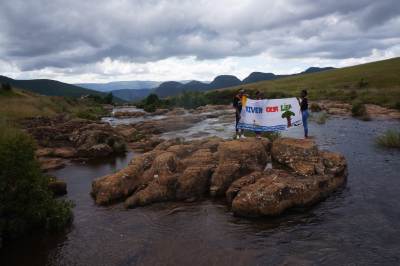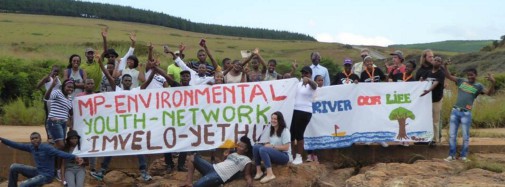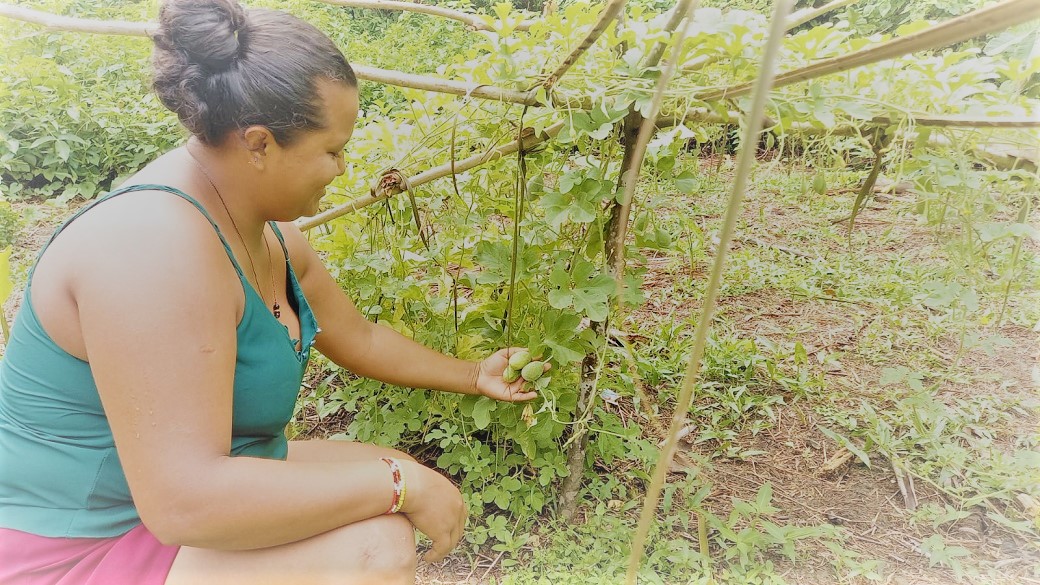IMVELO-YETHU MEYN workshop and excursion


On the 12th and 13th of March, 2016, the Mpumalanga Environmental Youth Network (MEYN) met for a one day workshop on the Saturday, followed by an excursion on the Sunday.
Fifty-two people gathered for this workshop, which had as a aim to develop ‘guiding principles’ regarding the serious environmental issues identified at the previous workshop, which was held on the 27th of February. The workshop also aimed to develop the identity and structure of the network.
Dr. Peter Markus, who is the head of the NRW Mpumalanga Forum introduced the work of the forum in the province and other parts of South Africa, and elaborated on the relationship between Germany and South African Civil Society. Dr. Markus spoke of the partnership between the Forum and GeaSphere, which had resulted in the Youth Network development proposal and the funds to facilitate the establishment phase of the network.
Ephraime Mosibi – a Guest from the Seven Gardens Project introduced a interesting initiative which is currently being implemented in the Free-State. This project empowers people with the skills to extract natural dyes from organically grown vegetables. The goal is to build a network of suppliers for fair traded vegetable dyes which can be used for painting and crafts, for colouring textiles and the manufacturing of cosmetics.
Matthews Hlabane, a dedicated environmental and social activist from the Southern African Green Revolutionary Council (SAGRC) spoke about the topic of mining, and the immense impact this industry is exerting on the water and productive farmland resources in Mpumalanga. He spoke about the term ‘development’ and what that really means for todays society. Ultimately, he asked the very critical question as to what is the most important resource for communities to sustain life: Gold or Water?
Philip Owen, representing the anchor organization for the development of the Mpumalanga Environmental Youth Network Program introduced the topic of the impact of grassland transformation to monoculture industrial activities on local biodiversity, water and soil resources.
The workshop broke into group discussions, to elaborate some of the main identified themes i.e. Water and Land Use, Littering / Pollution, Mining and Climate Change. After these ‘break away’ group discussions, the ideas was presented to the group and further deliberated. It was decided that the discussions will be formulated as draft ‘guiding principles’ by a ‘working group’ which would then be disseminated to the group for further discussions.
After a lunch of chicken, pap and salads, the workshop continued with a session of ‘break-away’ groups, which discussed the following themes:
– Local, Provincial, National and International Networks which could be examples or partners of the Mpumalanga Environmental Youth Network. Here was discussions regarding which civil society, industry and government processes the youth could engage with, such as the Environmental Liaison Committee Meetings at Ngodwana Mill and the Catchment Management Forum Meetings facilitated by the Department of Water Affairs and Sanitation.
– How the Network should use Social Media, a group mailing list, the FaceBook Page and a SMS server.
– The MEYN Web Site was discussed, the layout and content deliberated.
– The production, layout and content of a MEYN Flyer was discussed.
After the workshop the participants relocated to the Mpumalanga Scouts Centre, who provided accommodation and catering for the network. Lively discussions were held to late in the evening, and the youth network members could socialize and had an opportunity to get to know each other better.
On Sunday, 13 March the MEYN travelled by bus to view the state of the environment on the Panorama Route, from Nelspruit through the towns of White River, Sabie, Graskop and Hazyview. There were several stops. Where the MEYN members examined and contrasted the life and utility of Grassland VS Industrial Timber Plantations. In a grassland which was visited, the group split into small groups of two, and were asked to explore the grassland / wetland keeping an eye out for animals and plants. In the grassland, several plant species, flowers, grasses and shrubs were observed. Insects were numerous, birds and even crabs were noticed.
In contrast, the pine plantation nearby were silent and practically denude of life. A member noted that where plantation trees had died, there were ‘gaps’ in the canopy allowing for more light to penetrate – in these areas there was more grass – clearly indicating the ‘shading effect’ exerted by monoculture timber plantations which leads to the death of grassland plants.
Lunch was enjoyed at the MacMac Pools, and there was a group reflection on the observations made by the members on the differences between grassland and plantation.
The group then travelled on to ‘Gods Window’ where members discussed again the value of grassland and some potential solutions to some of the problems encountered, such as the possibility of pressurizing the timber industry to expand and broaden the network of ‘conservation corridors’ in the plantations to allow for the migration of animals and plants.
The last stop was at the river just above the Lisbon Falls, and there was a group photo taken with a banner proclaiming ‘Our Rivers – Our Lives’. This action was in celebration of the ‘International Day of Action for Rivers’, which is a global event held annually on the 14th of March.
The MEYN participants arrived back in Nelspruit at 3.30pm, tired but stronger, more informed, and determined to build a strong network whose members can engage meaningfully with various processes where decisions are made which influences environmental management and future sustainability.
With special thanks to the young GeaSphere Volunteers Theresa Loch and Jan Carl Matysiak for their enthusiasm, diligence and professionalism in helping to facilitate this important part of the MEYN Program.
VIVA MEYN VIVA!
This post is origionally posted by the Mpumalanga Environmental Youth Network (MEYN) which work closely with Geasphere, Global Forest Coalition member in South Africa.











